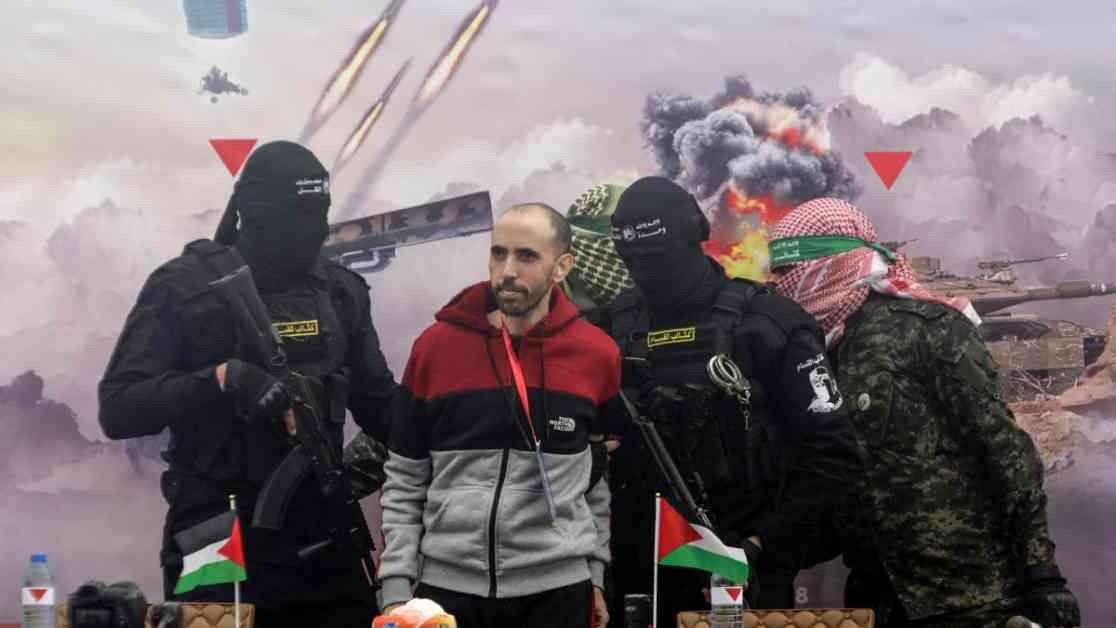Israeli Hostage Release Delayed Amidst Ceremonial Concerns and Political Tensions
In a poignant display of hope and despair, the release of 620 Palestinian prisoners was abruptly halted by Israel, citing the need for guaranteed hostage safety and a dignified transfer process. The delay, announced by Prime Minister Benjamin Netanyahu’s office, cast a shadow of uncertainty over the fragile truce between Israel and Gaza, raising concerns about the future of the ceasefire agreement.
The day was meant to mark a historic milestone, with the largest one-day prisoner release scheduled to coincide with the liberation of six Israeli hostages. However, as military vehicles prepared to escort the prisoners out of Ofer prison, they were unexpectedly turned back, leaving families waiting in the cold and uncertainty.
Emotional Turmoil and Human Stories
As the delay unfolded, scenes of heartache and longing played out in the West Bank, where families of the prisoners gathered in anticipation, only to disperse in tears and frustration. The emotional toll of the stalled release was palpable, with one woman captured on camera walking away, her tears mirroring the collective anguish of those affected by the sudden turn of events.
Meanwhile, the freed hostages faced a bittersweet homecoming, with tales of resilience and longing emerging from their harrowing ordeals in captivity. The staged ceremonies surrounding their release, while meant to symbolize joy and relief, also underscored the complex emotional journey that awaited them as they reunited with loved ones.
In a poignant moment captured on film, Omer Shem Tov, one of the freed hostages, expressed his gratitude to his family amidst tears and laughter, painting a vivid picture of the emotional rollercoaster that defined their reunion. The human stories behind the headlines shed light on the profound impact of conflict and captivity on individuals and their families, highlighting the enduring scars that linger long after the physical shackles are removed.
Political Implications and Uncertain Futures
Amidst the personal narratives and emotional upheaval, the political landscape remained fraught with tension and uncertainty. The delay in the prisoner release sparked accusations of bad faith and deliberate stalling, with both sides pointing fingers and raising doubts about the sustainability of the ceasefire agreement.
As negotiations for the ceasefire’s second phase loomed on the horizon, the delicate balance between peace and conflict hung in the balance, with conflicting demands and divergent goals complicating the path forward. The release of the remaining hostages, the fate of the truce, and the prospects for lasting peace all remained uncertain, casting a shadow of doubt over the fragile calm that had momentarily settled over the region.
As the world watched with bated breath, the human drama of conflict and captivity played out against a backdrop of political maneuvering and strategic calculations, underscoring the intricate interplay between personal narratives and geopolitical realities. The release of hostages, once a moment of joy and relief, had now become a symbol of the complex web of relationships and power dynamics that defined the Israeli-Palestinian conflict.
The road ahead remained fraught with challenges and uncertainties, with the fate of the hostages, the future of the ceasefire, and the prospects for lasting peace hanging in the balance. As families awaited news of their loved ones and politicians navigated the treacherous waters of diplomacy, the human stories behind the headlines served as a poignant reminder of the enduring impact of conflict on individuals and communities alike. The echoes of past traumas and the hopes for a better future intertwined in a delicate dance of uncertainty and longing, painting a vivid portrait of a region caught between the promise of peace and the specter of war.


